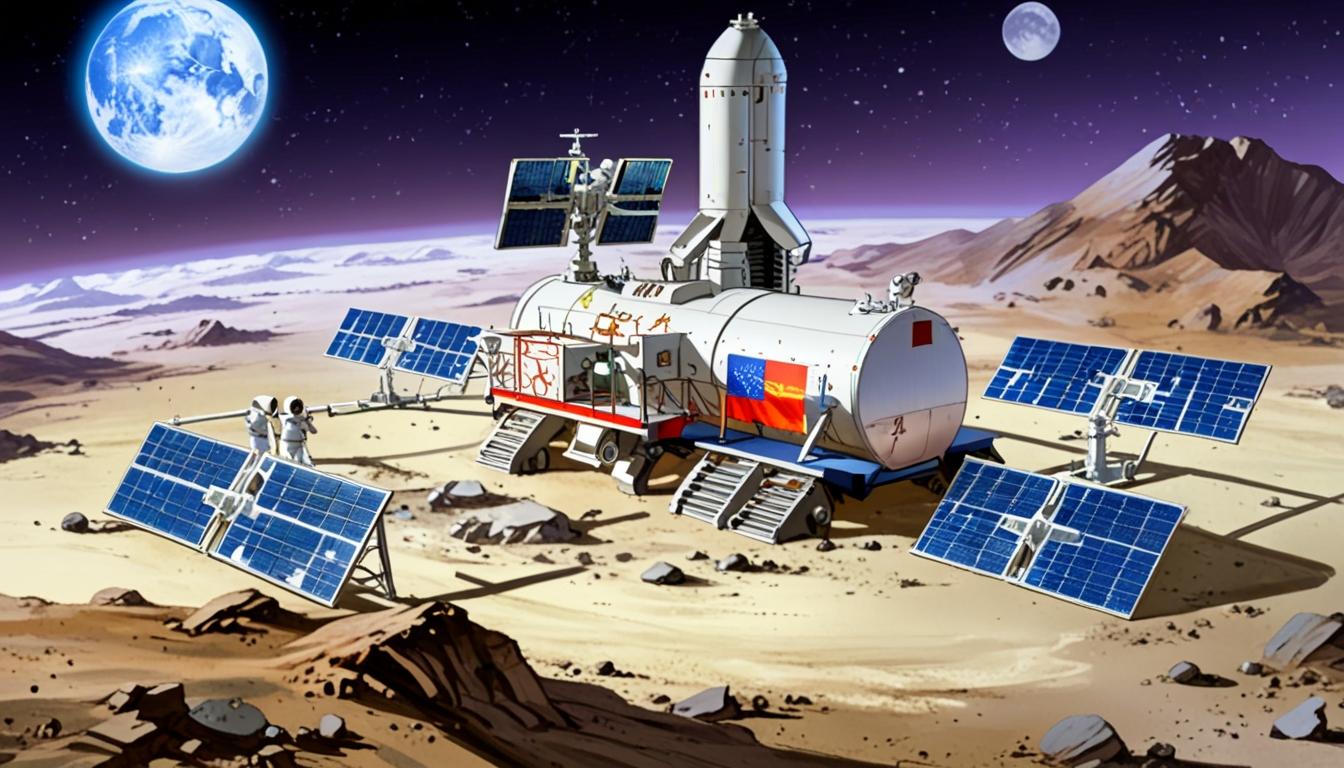The chief designer of China’s lunar exploration programme, Wu Weiren, has accused the United States of interfering with Beijing’s efforts to collaborate with European and other international partners in space exploration. Speaking in a rare interview with Reuters reported by the Business Recorder, Wu contrasted China's policy of open space diplomacy with that of the U.S., stating that China remains open to cooperation with both developing and developed countries on lunar projects.
Wu highlighted the progress of the International Lunar Research Station (ILRS), a joint initiative between China and Russia aimed at establishing a permanent lunar base by 2035. According to Wu, the ILRS is developing well, with 17 countries and international organisations having signed up as members. However, he pointed out that China has not been able to attract as many partners as the United States' lunar programme, attributing this to U.S. interference, though he did not provide specific examples. He said, “The ILRS’ development trend is very good but compared to the U.S.’ Artemis Accords, ours is much smaller in terms of countries because the U.S. is always interfering in our cooperation with other countries, including with Europe.”
The Artemis Accords, a U.S.-led multilateral agreement, seek to establish norms for behaviour in space and on celestial bodies such as the moon and Mars, and have secured over 50 signatories to date. In contrast, Wu emphasised strong bilateral cooperation between China and Russia, particularly on moon-based nuclear energy projects.
China's recent unmanned lunar missions, which aim to lay the foundation for a manned base on the moon, have included foreign payloads from countries such as Pakistan, Thailand, Italy, and France. Hernan Merino Choque, a deputy director at the Asia-Pacific Space Cooperation Organization—a member of ILRS and largely funded by Beijing—remarked that the ILRS uniquely offers “equal opportunities for any country to be accepted and to participate actively by proposing payloads and satellites.”
Further signalling China’s ambitions in space diplomacy, China announced in February plans to train a Pakistani astronaut to visit the Tiangong space station next year. This will mark the first time a foreign astronaut joins the Chinese space station.
However, the European Space Agency (ESA) has distanced itself from the ILRS following Russia’s invasion of Ukraine, citing concerns over Russia’s involvement in the project. While ESA contributed a payload to China’s latest lunar probe, Chang’e-6, it currently has no plans to participate in the upcoming Chang’e-7 and Chang’e-8 missions, scheduled for 2025 and 2028, respectively. Additionally, in 2023, ESA declared it would no longer pursue sending astronauts to the Tiangong station.
The relationship between the U.S. and China in space collaboration remains constrained by the Wolf Amendment, a law enacted in 2011 prohibiting NASA from engaging in cooperation with China or Chinese companies unless expressly authorised by Congress.
Wu’s statements illustrate ongoing tensions in international space cooperation, highlighting the competing strategies of major spacefaring nations to assert leadership and foster partnerships in lunar exploration.
Source: Noah Wire Services
